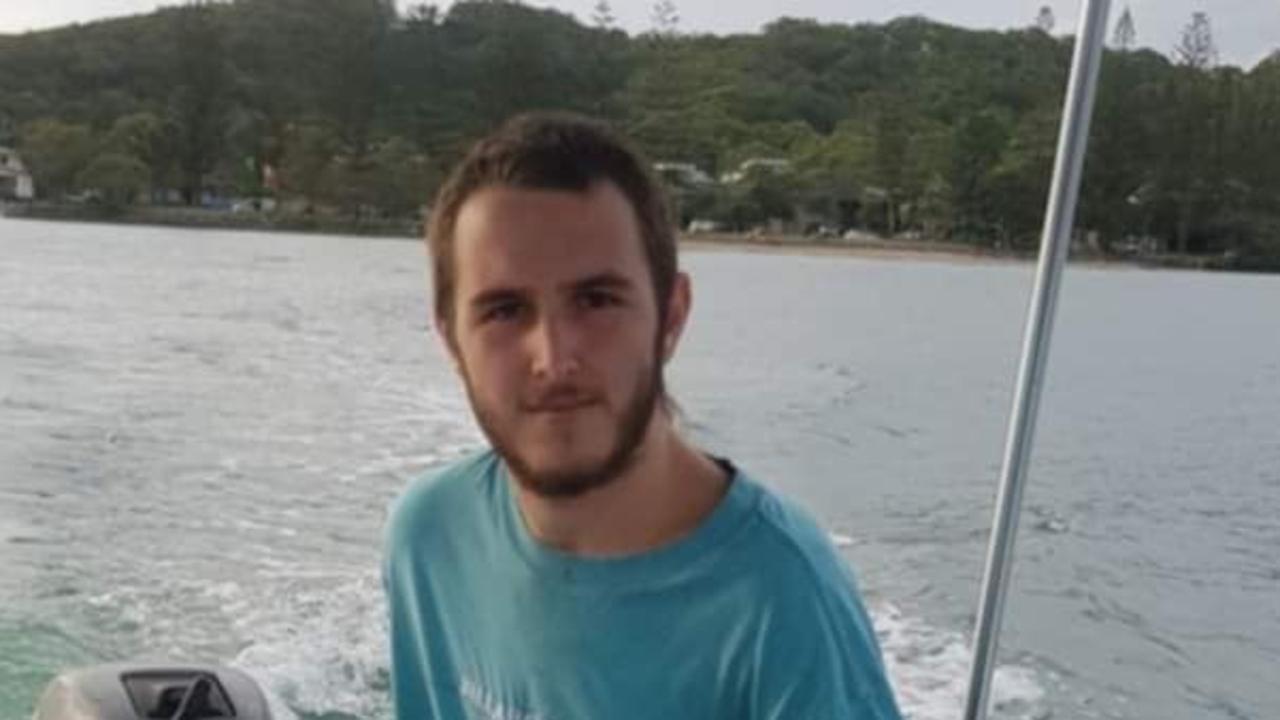Gold Coast youth crime: GPS trackers to be trialled on 'hardcore' child criminals
“Hardcore” youth offenders will be fitted with GPS trackers in a trial run of the latest crackdown on child criminals.

Gold Coast
Don't miss out on the headlines from Gold Coast. Followed categories will be added to My News.
- Man charged with ‘stalking’ children at Coast shopping centre
- Drug accused pro surfer’s girlfriend ban to stay
“HARDCORE” youth offenders will be fitted with GPS trackers in a trial run of the latest crackdown on child criminals.
Courts will be able to order 16-17-year-old offenders wear the GPS monitoring devices from Monday (May 17) if they are given bail.
Police Minister Mark Ryan said the new measures were designed to target “hardcore recidivist offenders”.
“The devices will be monitored around the clock by Queensland Corrective Services who have extensive experience with this technology,” he said.
The trial is part of a $98.4 million funding package to support a youth crime crackdown after new laws were introduced last month.
The package also includes expansions of joint Police and Youth Justice strike teams to the Gold Coast, “enhanced intensive supervision” of young offenders on bail and intensive support for families and children on bail.
BOND UNIVERSITY PROFESSOR WEIGHTS IN ON YOUTH CRIME
A forensic psychologist says young people with a history of blocked opportunities are more likely to commit crimes, but GPS tracking and tightening breach of bail laws aren’t the answers.
Bond University Professor Dr Bruce Watt, who has over 20 years of experience working in youth detention centres and children’s courts assessing juvenile offenders, said a majority of crimes committed by young people are reactive of an unconventional and unstable upbringing.
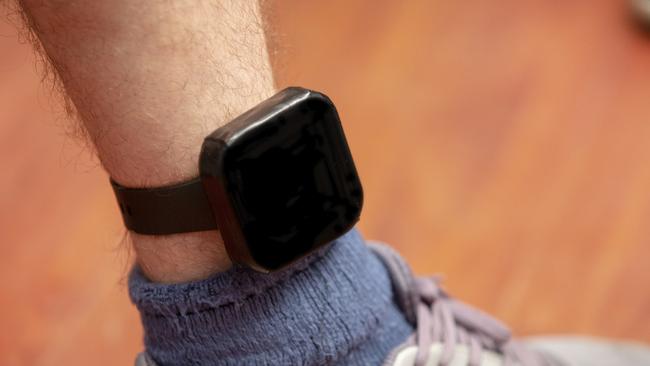
“(The public) perceive crimes as being wilful or against society, which it is for a small proportion of juveniles, but then for the majority of juveniles who are involved in crime, it reflects more that disadvantage.”
Dr Watt said these disadvantages can come from family violence, alcohol and drug misuse, and a broader community poverty.
“Children learn from what they see so if a child is in an environment where they see violence, if they have parents who are committing crime or are using drugs, then that’s what they learn as being a normal type of experience.”
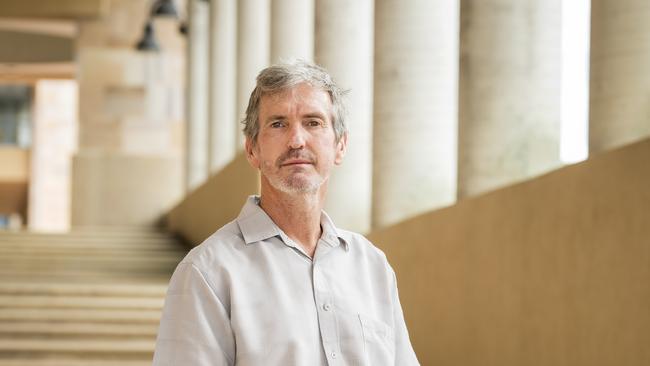
Youth Justice Department figures show that between 2018-19 more than 60 per cent of young offenders in Queensland had experienced or been impacted by domestic violence, 33 per cent had at least one parent who had spent time in custody and 21 per cent were in “unstable and unsuitable accommodation.” Almost 40 per cent had used ice or experimented with other methamphetamines.
Dr Watt said offenders who “don’t fit (this) prototype” of a juvenile offender might resort to crime because of a predisposition for risk-taking behaviours.
FULL DIGITAL ACCESS: JUST $1 FOR FIRST 28 DAYS
“(They might) start socialising with other individuals who already are involved with drugs and crime and then through that initial involvement, what they inadvertently end up doing is cutting off those avenues to divert away.
“They might end up dropping out of school, moving away from family (and) stopping their involvement with non-offending peers.”
Dr Watt said a majority of young people successfully rehabilitate after a first offence but reoffending can occur when juvenile offenders interact with each other.
“If they continue to interact with offending peers, the more that they will lose contact with family, they lose contact with friends who are not involved in crime, (they might) develop an alcohol or drug problem, (or) if they drop out of school and lose their prospects for work, a combination of those factors make it a lot harder for someone to desist from crime.”
On the introduction of GPS trackers on youths, Dr Watt said if young people were “determined to commit crime then a GPS was not going to stop them”.
In fact, he suspected they would “just cut them off”.

“The juveniles who are quite entrenched in committing offences, they’ll probably cut it off and just disregard it – or worse, it might even be a badge of honour.”
Queensland Opposition leader David Crisafulli last week called to reintroduce breach of bail as a criminal offence for young people.
However, Dr Watt said toughening bail laws alone would not reduce the youth crime rate and may have potential adverse effects for young Aboriginal people.
The Royal Commission investigated Aboriginal deaths in custody that occurred between 1980-89. The report outlined 339 recommendations including that imprisonment be a last resort.
Dr Watt said the breach-of-bail laws would “probably increase the rate of young Aboriginal people being locked up” and would therefore be “counter-productive to what the recommendations were over 30 years ago”.
Dr Watt said it was important for “people providing interventions and members of the community to work collaboratively” to develop appropriate solutions to reform youth crime.
He said early intervention by child protection services was not always possible, and often challenging due to lack of resources, but identifying at-risk students could be done in schools.
“Once these children start to gravitate into the school environment, they’re sort of behind because of the family experiences they’ve had and they’re vulnerable to underachievement at school and behavioural problems.”
Youth Justice Department data shows more than half of young offenders were disengaged from education or without employment, and more than half had a mental illness or behavioural disorder, diagnosed and suspected.
“So then we’re looking at identifying these children early when they come to the attention of school authorities to allocate resources to these children and their families to try and prevent that (deviant) trajectory for them so they don’t get involved in crime in their adolescence.”
GPS trackers could become ‘badge of honour’
GPS trackers on bailed teenagers could fuel notoriety among kid crooks who would wear the device as a “badge of honour”, a Gold Coast lawyer fears.
It comes as Police Minister Mark Ryan said the GPS trackers – which will be trialled on 16 and 17-year-olds as part of sweeping changes to youth justice laws – would not be a silver bullet to bail compliance and not effective on its own.
Gold Coast lawyer Michael Gatenby was scathing of the proposal to put GPS trackers on teenagers and said it would either isolate them, or become a “badge of honour” among kid crooks.
“We took the vests off the bikies and gave GPS trackers to the kids, now they’ve got their colours,” Mr Gatenby, of Gatenby Criminal Lawyers, told the Bulletin.
Under new measures announced by the government this week, courts will be able to issue GPS trackers to recidivist juvenile offenders as part of their bail conditions.
GPS trackers are currently used for people on parole and bail, as well as dangerous prisoners and sex offenders.

In 2018, the Bulletin revealed a series of flaws with the trackers, including concerns about signal coverage and that they were being monitored from overseas in “near real time”.
The Bulletin also revealed that there were delays in GPS trackers being fitted on bailed offenders as they had to be transported from Brisbane. Since then devices are stored on the Gold Coast.
FULL DIGITAL ACCESS: JUST $1 FOR FIRST 28 DAYS
Asked about whether the contract had changed since then, or whether the provider was based out of the United Kingdom, Mr Ryan said “there were multiple providers” based on the device’s purpose.
“There’s always a local response,” he said. “It’s not like someone’s flying in from London to apprehend the offender who’s breached their GPS tracking condition.
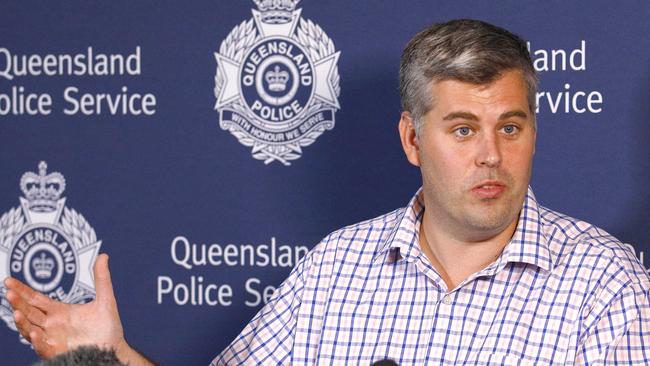
“What happens is if someone breaches their condition an alert is raised and you get a local response.”
“In fact it was only a couple of days ago we had someone breach their GPS bail tracking condition, and the alert was raised immediately,” Mr Ryan said.
“The person was apprehended within 10 minutes. That is the local response, that is the world’s best practice that we have here in Queensland.”
Leading Gold Coast lawyer Bill Potts also said this week the GPS would not prevent crime, nor solve the root cause of offending.
He said children could not be trusted to meet the responsibilities of the GPS trackers. An offender must agree to conditions such as charging a device for two hours a day, to not take off the device without a court order, and provide a phone number to police.
Mr Ryan said if the teens breached bail for failing to meet the requirements, like keeping them charged, they could find themselves in custody.
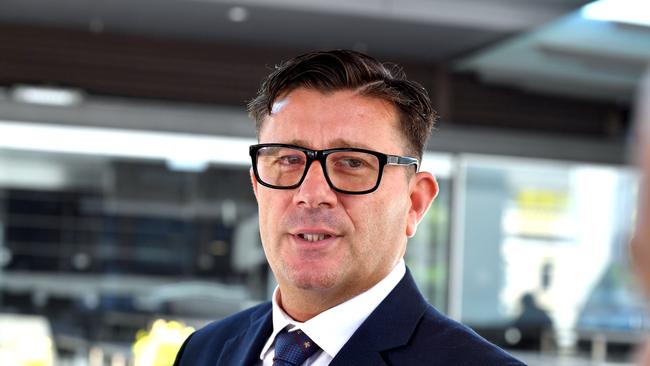
“There is severe consequences for not complying with a bail condition, like a GPS tracker. But also, it’s why we’re being very responsible and measured about how we’re rolling it out and it must have that suite of supervision and management options that go along with it. On its own, on its own you don’t get … I should say, it is only effective as part of a suite.
“On its own you don’t get the great, great benefits that you do as part of a suite of management.
He said the trial would be reviewed after a year, adding the government would speak with police and stakeholders about how young people have responded, and whether offending had reduced, and community safety was boosted.
Originally published as Gold Coast youth crime: GPS trackers to be trialled on 'hardcore' child criminals

